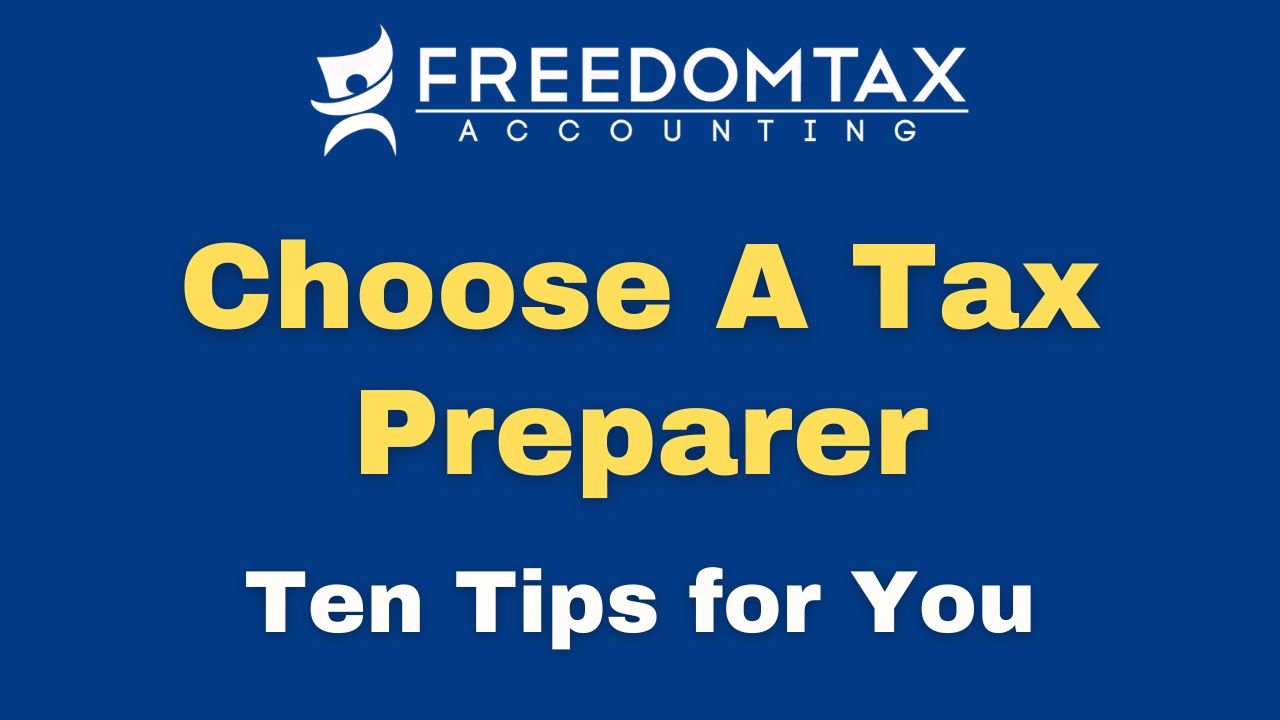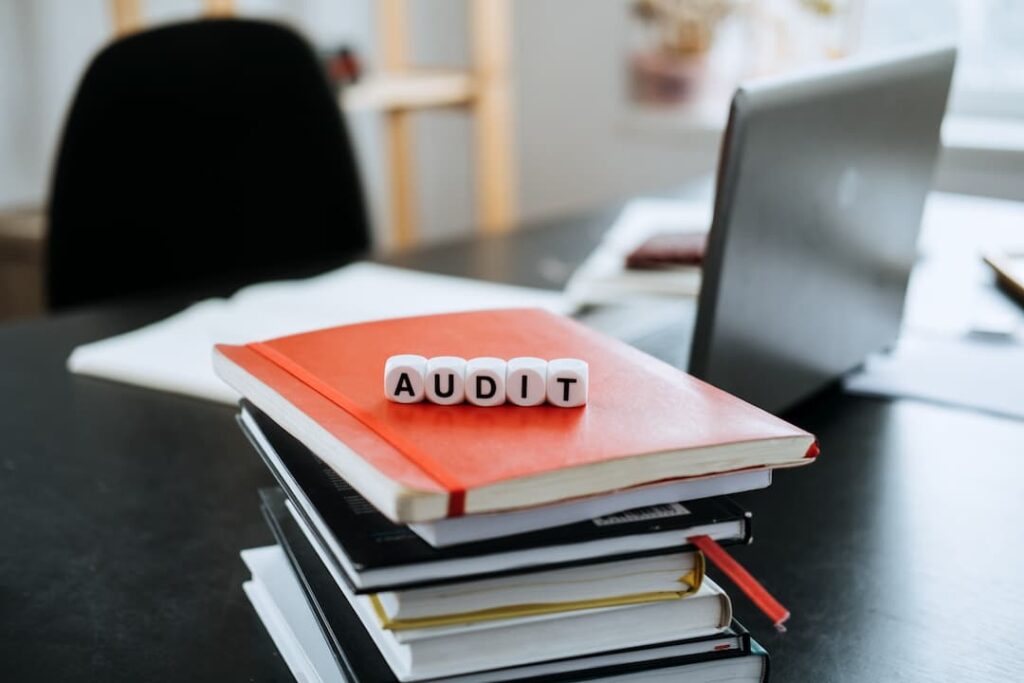
Choose a Tax Preparer
Choosing the right tax preparer is a decision that shouldn’t be taken lightly. Every year, millions of individuals seek assistance in preparing their tax returns. The process can be intricate, and the stakes are high. Remember, even if someone else prepares your return, you, as the taxpayer, are legally responsible for its contents.
This underscores the importance of choosing the right tax preparer to ensure accuracy and compliance with all federal tax regulations.
10 Tips to Choose a Tax Preparer
1. Check the Preparer’s Qualifications
When choosing a tax preparer, it’s essential to:
- Ensure they have a valid Preparer Tax Identification Number (PTIN). The IRS requires all paid tax preparers to have this number.
- Inquire about their membership in professional organizations. Being part of such groups often means they adhere to a code of ethics and professional conduct.
- Confirm they attend continuing education classes. This ensures they’re updated with the latest tax laws and regulations.
Here’s a directory of federal tax return preparers to help you verify credentials.
2. Investigate the Preparer’s History
Before entrusting someone with your financial details and tax situation:
- Check with the Better Business Bureau to see if the preparer has any complaints or a questionable history.
- Look out for any disciplinary actions and verify the status of their licenses. For CPAs, you can check with state boards of accountancy. For attorneys, state bar associations are a good resource. And for enrolled agents, the IRS Office of Enrollment is the place to go.
The American Institute of Certified Public Accountants offers resources for verifying CPA credentials.
3. Understand Service Fees
When discussing fees with a potential tax preparer:
- Avoid preparers who base their fee on a percentage of your refund. This can be a red flag for unethical behavior.
- Ensure any refund due is directed to you, the taxpayer. It’s a risk to deposit your refund into a preparer’s account.
- Be wary of claims about obtaining larger refunds than other preparers. It’s essential to choose a preparer who’s honest and transparent about fees and potential refund amounts.
4. The Benefits of E-filing
E-filing has become the norm for many tax professionals, and for good reasons:
- Any paid preparer who prepares and files more than 10 returns for clients must file electronically. This ensures faster processing and often quicker refunds.
- The IRS e-file system has a long history, having securely processed billions of individual tax returns since its inception in 1990.
5. Accessibility of the Preparer
After your tax return is filed, the relationship shouldn’t end there:
- Ensure you can easily contact the tax preparer post-filing. This is crucial if questions arise about your tax return or if there’s an audit.
- A good tax professional remains accessible and responsive, even after the tax season is over.
6. Importance of Records and Receipts
Maintaining accurate records and receipts is paramount when preparing for tax season. These documents play a crucial role in:
- Determining your income, possible deductions, and credits.
- Ensuring you get the most out of your tax return while staying compliant with the law.

However, there are risks associated with e-filing if you provide incomplete or inaccurate information. It can lead to discrepancies in your tax return, potential audits, or missed opportunities for deductions and credits. Always ensure your tax preparer has all the necessary information to accurately prepare your taxes.
7. Never Sign a Blank Return
Never sign a blank return – it’s a cardinal rule when working with a tax return preparer. Here’s why:
- It gives the preparer carte blanche to enter any amount, which can lead to fraudulent claims or inaccuracies.
- You might end up being responsible for false information, leading to penalties or legal issues.
8. Reviewing the Return Before Signing
Before you put pen to paper, take a moment to:
- Understand every entry on your return. Ensure its accuracy and that it reflects your tax situation for the year.
- Ask questions if something isn’t clear. A reputable tax return preparer will always be willing to explain and clarify any doubts.
Remember, once you sign, you’re attesting to the accuracy of the information. It’s always better to be safe than sorry.
9. Ensuring Preparer Signature and PTIN
Every paid preparer has certain legal obligations:
- They must sign the return they prepare. The IRS requires this as an assurance of their involvement.
- They should include their Preparer Tax Identification Number (PTIN) on the return. This unique number helps the IRS track and regulate tax professionals.
Additionally, always ensure you receive a copy of the return for your records. It’s not just good practice; it’s your right as a taxpayer.
10. Reporting Abusive Tax Preparers
Unfortunately, not all tax preparers have your best interests at heart. If you suspect or know of a tax preparer involved in fraudulent activities:
- Report them immediately. It’s essential for protecting both yourself and others.
- Use Forms 14157 and 14157-A, available on the IRS website, to report abusive tax preparers.
The National Association of Enrolled Agents provides resources on how to identify and report such individuals.
What People Also Ask
What should I consider when choosing a tax preparer?
When choosing a tax preparer, consider their qualifications, experience, and reputation. Ensure they have a valid PTIN, check for membership in professional organizations, and verify their history with resources like the Better Business Bureau.
How do I know if a tax preparer is legitimate?
A legitimate tax preparer will have a valid PTIN, be transparent about their fees, and never ask you to sign a blank return. You can also check their credentials and history with professional organizations and the IRS.
Can I file my taxes electronically?
Yes, e-filing is a popular and secure method to file taxes. If your tax preparer prepares more than ten returns, they must file electronically. It ensures faster processing and often quicker refunds.
What if I have a complex tax situation?
If you have a complex tax situation, it’s essential to work with a tax professional with experience in your specific area, be it business taxes, international income, or large investments. They’ll be better equipped to guide you and ensure accuracy.
Conclusion
Navigating the intricacies of tax preparation can be daunting, but with the right tax preparer by your side, the process becomes significantly smoother. Remember, the key lies in due diligence: from verifying qualifications to understanding service fees and ensuring transparency at every step. Your financial well-being and peace of mind are paramount, and they hinge on the choices you make during tax season.
By heeding the advice shared in this guide, you’ll be better equipped to make informed decisions, ensuring that your tax return is accurate, compliant, and optimized for your benefit. As the saying goes, “In this world, nothing is certain except death and taxes.” So, when it comes to the latter, always choose wisely.
You can contact us by phone, email, or by visiting our offices:
- Address: 1016 E Osceola Parkway, Kissimmee, 34744, Florida, United States
- Phone: 407-502-2400
- E-mail: [email protected]
Remember that we are part of Freedom Group, a conglomerate of companies dedicated to providing quality services in accounting, taxes, financial consulting, insurance, real estate, business incorporation, among others.
As for your finances, we can help you with everything you need.













 Subscribe to my channel
Subscribe to my channel






Post comment
You must be logged in to post a comment.